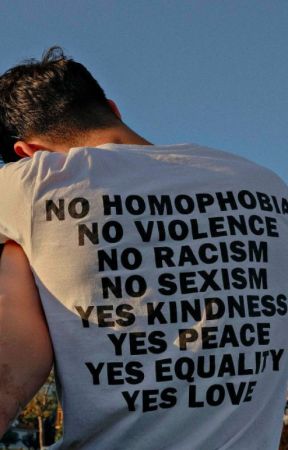When his adoptive parents video-call, he's more than happy to have me chat with them while he sprints to take the kettle off the stove. When his sister calls, he leaves the room before the conversation gets too unintelligibly peppered with Azeri Turkish.
When I ask who the mysterious woman who always leaves her fragrance behind in his flat is—and if he intends to introduce us soon—he leaves the bed to fish out the little box from deep inside his wardrobe. He hands me the perfume bottle and tells me it's his mother's. That it's the only thing of hers he owns, and that the perfume; sixteen-years-old and weathered, still smells exactly like her.
Four months into our relationship he shows me her picture. He retrieves a sepia-toned photo fitted for a passport from the same box, and a larger, more up-to-date photograph of him, his mother, and his sister—taken mere days after their arrival to a snow-blanketed Sweden. There's something striking about the woman. Something that deepens my understanding of a mother to also encompass her genetic contribution. Where I've always been told I resembled my father and took it as fact, Yashar is his mother down to the way her face falls. The same droopy eyes, the same forehead and eyebrows and lips.
His sister is younger than him by two years. In the picture, she's dressed in cerise coloured overalls reminiscent of an 80s ski-trip advert. Her dark hair is chopped short, and I can tell from her sly, toothy grin, and the limited times I've overheard her heated voice on the other end of the phone, that she would occupy Foy's position in Foy and I's relationship if she and Yashar shared anything like our sibling dynamic.
Later, when I search her up on Facebook, I inadvertently stumble on his father. If Yashar rarely talks about his mother, he talks about his father even less. I come to find out after some considerable translating that the music he regularly shares on social media is not his favourite artists', but his own. He doesn't live in Iran, rather in Malmö, but checks into Tehran so often that I could've easily made the mistake. The only other photograph not of himself and his daughter is with another woman. She's wearing a black hijab. They're standing side by side so it's hard to derive anything from it—his wife, a work colleague?—Google Translate isn't much help in deciphering the caption. It's also the picture where I notice that one side of his jaw is scarred by burns. Not small ones either.
I've never been good with making judgments about people's features, but I've watched enough Disney to know who society would cast as the villain. There's something about Hussain Alizadeh that's particularly Disney-villainy. The way he seems allergic to smiling, his moustache, his length and width, the narcissism so clearly displayed in his posts. His condemnation of same-sex marriage, and his approval of the religious leadership of Khamenei. Why couldn't we bond over this? As sorry as I feel for Yashar for having a less than stellar Dad, I can't help but feel more connected to him. I could see my father in Hussain's overzealous posts to Yashar's sister, Nasrin. They were scattered all over his page, and the uncanny part was that they could be about the smallest thing. It was like how my father was with Billie and Foy.
It isn't until some months later, well past the half-year mark of our relationship, that I actually hear his father's music for the first time. I walk into the living room, to Yashar doing his usual deep-tissue massages on the foam roller, whilst the most resonant, wind instrument plays overhead. I still remember how I came to a halt in the hallway as the ney filled every valve and chamber of my heart.
His father is the flautist in an ensemble that primarily makes worship music. Sufi worship music. When Yashar tells me this, his voice is a whisper, almost like he's daydreaming. As I realise he isn't going to share any more details, my assumptions about Hussain Alizadeh are replaced by a deeper realisation. I thought our fathers were the same but they're not. I thought they did things mediocrely. Lived mediocrely, loved mediocrely. But that isn't who his father is. Hearing his music I knew I'd been wrong and prejudiced. His father was capable of love. He'd once loved something so deeply that his only release had been to record its wailing sound to the world as his witness.

YOU ARE READING
Eshgham
General Fiction[M/M] Frans Dahl and Yashar Alizadeh have been a steady couple for two years, but when your boyfriend is an enigmatic, tight-lipped dancer admired by thousands, doing things by the book isn't always on the cards. Communication is a struggle, made mo...
